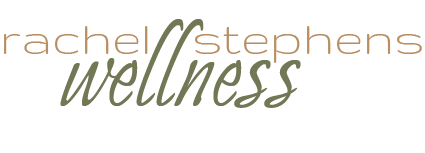Postpartum depression (PPD) and anxiety (PPA) affect up to 1 in 7 new moms, and can be debilitating. While there's no single solution that works for everyone, there are some natural ways to set yourself up for success and to best support you during this transformative time.
There is strong evidence to suggest that hormones play a significant role in the development of PPD & PPA. During pregnancy, levels of estrogen and progesterone increase dramatically, and then drop sharply after giving birth. This sudden shift can disrupt the delicate balance of neurotransmitters in the brain that regulate mood, leading to symptoms of PPD.
PLEASE NOTE:
Throughout this post I am not suggesting PPD & PPA can be avoided completely. But that by acknowledging the complex interplay of hormones and mental health, we can better understand and address the challenges faced by new mothers.
Therefore, supporting the body and hormones (along with proper mental health) will results in more positive outcomes.
1. SET YOURSELF UP FOR SUCCESS
Have conversations with your support team prior to babies arrival about what signs and symptoms to look out for. Have a plan on what to do if they arise.
Mom is not likely to recognize what's transpiring when she's in the thick of it and therefore having your support team on the same page with a plan of action will be key!
2. NOURISH YOUR BODY
Make sure you're getting in nutrient dense foods! This can be a challenge when you're also adjusting to having a new baby so again, get prepared before baby arrives.
*Make a few nutient dense meals to store in the freezer. Soups and stews with bone broth and root vegetables are great for this!
*Ask friends and family to ditch the meal train and instead, send them a few healthy recipes to make for you! Remember loved ones want to give you what you need so don't hesitate to be a bit picky here.
It's your health and your body, after all!
3. TAKE THE RIGHT
SUPPLEMENTS
Along the same lines of nourishing your body, think of supplements as added insurance on top of your nutrition. They're filling the gaps you're missing through diet along.
Studies show that continuing on your prenatal vitamin is key! Additionally, Omega-3 fatty acids, vitamin D, probiotics and B12 are some of the most commonly studied supplements for PPD and PPA. Have these on hand and have a plan on how you will remember to take them daily.
4. THINK ABOUT IMPLEMENTING
THE 5-5-5 RULE
Spend at least 5 days in bed, 5 days on the bed, and 5 days around the bed. This allows for optimal rest and recovery after childbirth, as well as time to bond with and breastfeed the baby. During the first 5 days in bed, new moms are encouraged to limit physical activity and focus on healing, while the next 5 days on the bed allow for gentle movement and light activities. By the final 5 days around the bed, new moms should be feeling more energized and ready to gradually resume their normal daily routines.
5. GET OUTSIDE
ONCE A DAY!
There is a lot of time spent indoors during the newborn stage. Countless studies have shown getting outside can have a tremendous impact on mental health. If you can, get outside for a bit once a day.
If you can do it alone while someone else is watching baby, great! If not, take baby with you! Being outside is also calming for them. As a bonus, some sunlight on babies skin has been shown to improve jaundice levels. When your body is feeling up for it, add in some movement with short walks.
Remember, it's normal to experience a wide range of emotions after having a baby, but if you're struggling to cope, don't hesitate to seek help. You're not alone, and with the right support, you can feel like yourself again. 💕
Link to my favorite PP Supplement Bundle!

